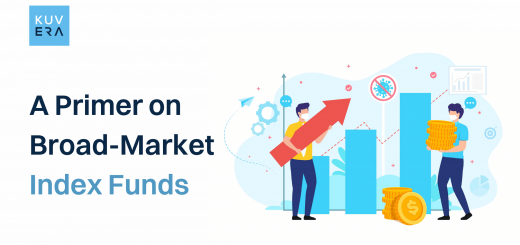What are Value Funds?
Mutual funds that employ a value investment approach are referred to as value funds. These funds invest in undervalued stocks that trade at a discount to their respective intrinsic value. Many market-listed companies’ stock prices may not accurately reflect their actual value. They have growth potential, and their inherent worth is greater. The intrinsic value of a stock is determined by the fundamental examination of the company. Among the fundamental elements are the company’s financials, its competitive position, and financial measures such as the PE ratio, the PB ratio, and the ROE.
The portfolio of value mutual funds invests across diverse market capitalizations and sectors. The fund manager employs a variety of basic metrics to discover value stocks. In addition, these stocks have reduced downside potential. In other words, the likelihood that undervalued stocks would fall further is greatly reduced. Consequently, the risk associated with value funds is that they may underperform consistently, even during bull market phases. These funds tend to reward investors with a long-term investment horizon.
Who Should Invest in Value Mutual funds?
The majority of investors favour funds that combine growth and value investment methods to produce long-term wealth. However, it requires a great deal of time, work, and market knowledge to locate the appropriate stock and buy it at the right time. Therefore, value mutual funds are appropriate for investors who find the selection of value equities to be overwhelming.
Long-term performance should be superior for value companies due to their high intrinsic value and solid corporate fundamentals. The value of a stock may increase or fall over time. Consequently, investors with a long-term investment horizon should favour value funds. Moreover, investors with significant exposure to growth equities can choose value funds, which provide stable returns regardless of the market cycle.
Benefits of Value funds
- A diversified portfolio ensures that a portion of the portfolio will always perform well. Value Funds diversify a portfolio by allocating assets to growth-oriented schemes.
- Investments in Value Funds are distributed among undervalued economic sectors. This increases the market’s growth and trust in lagging stocks.
- Due to the fact that Value funds do not invest in stocks with high expectations, they are considered less volatile. These funds, which employ a value investing strategy, concentrate on inexpensive or currently undervalued companies.
Factors To Consider Before Investing in Value Funds
- Historical performance
The majority of investors consider the fund’s performance during the past five years. This is more important when investing in a value fund. Examining how the fund manager has achieved the fund’s investment objective while adhering to the value investing technique will help you determine if the aforementioned scheme is suitable for your portfolio. Consequently, you should investigate the past performance of the fund and examine the selection of stocks in its portfolio. Analyze and make a choice based on the analysis. However, past returns do not indicate guaranteed future returns.
- Investment Horizon.
When investing in equities or securities related to equities, many financial gurus advocate a minimum investment horizon of 5 to 7 years. This is more important in value investing, as fund managers invest in stocks that are undervalued owing to market conditions. It may take some time for the conditions to subside before the markets resume their upward trend. Therefore, invest in a Value Fund if you have a minimum 5-year investing horizon.
- Diversification
As an equity fund, the fund manager has the option of investing in large-cap or small/mid-cap value stocks. Unless you are seeking exposure to companies inside a certain market capitalization group, opt for a value fund that is diversified across several market capitalizations and industries. Putting all your eggs in one basket is never a prudent investment plan.
How to Invest in Value Funds through Kuvera?
You can invest in direct mutual funds through Kuvera and avoid paying commissions. It is the best platform to invest in mutual funds as it is 100% free and helps you find the right investment for your life goals.
To invest in mutual funds via Kuvera, follow the given steps:
Step 1: Sign up at www.kuvera.in.
Step 2: Complete the KYC requirements and link your bank account.
Step 3: Click on MF in the Explore section to choose mutual funds for investment.
Click here to explore top-value funds.
List of Best Value Funds in India
| Scheme | 5-Year Return | AUM (INR)(Cr) |
| ICICI Prudential Value Discovery Fund | 14.30% | 25,854.62 |
| UTI Value Opportunities Fund | 13.25% | 6,870.18 |
| IDFC Sterling Value Fund | 12.76% | 4,946.84 |
| Nippon India Value Fund | 12.54% | 4,745.84 |
| Templeton India Value Fund | 11.15% | 779.84 |
| L & T India Value Fund | 10.91% | 7,787.75 |
| HDFC Capital Builder Value Fund | 10.85% | 5,446.42 |
| JM Value Fund | 9.78% | 155.70 |
| Tata Equity PE Fund | 9.56% | 5213.92 |
Source: AMFI (data as of 18/10/2022)
To invest in one of the top value funds such as L & T India Value Growth Direct Plan, click here
Interested in how we think about the markets?
Read more: Zen And The Art Of Investing
Watch/hear on YouTube:
Start investing through a platform that brings goal planning and investing to your fingertips. Visit Kuvera.in to discover Direct Plans and Fixed Deposits and start investing today.











